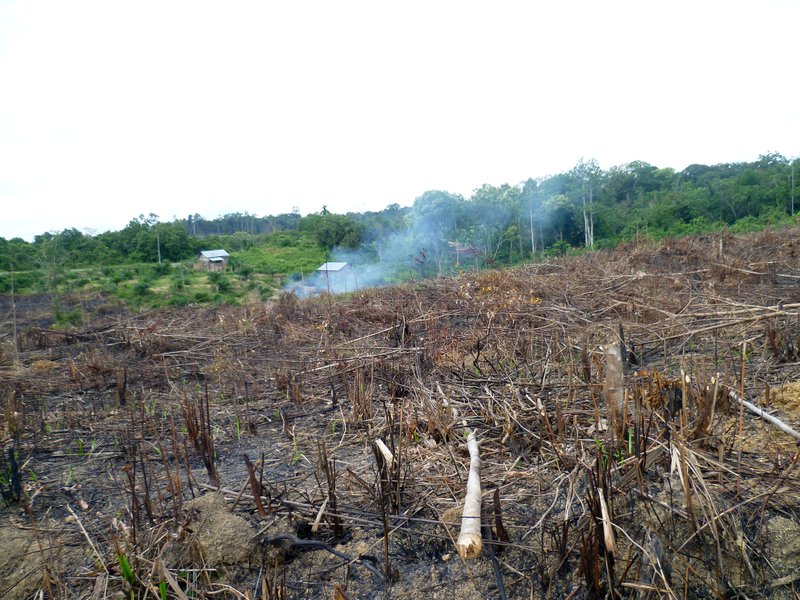Detrimental impacts of palm oil causing deforestation in Indonesia
January 9, 2020
The citizens of Indonesia are choking. Their air is smoke, and their skies are hazy. The reason: palm oil.
The introduction of palm oil into Western markets boomed production, which in turn increased the number of plantations in Indonesia. Along with the United States and China, Indonesia has increasingly become a large producer of greenhouse gas emissions due to deforestation. One of the leading causes of deforestation is palm oil.
Palm oil plays a significant role in the economy of Indonesia, as it is the largest producer of palm oil in the world. However, palm oil exports in Indonesia have caused the massive acceleration in the deforestation of forests.
According to the Center for Orangutan Protection, Indonesian forests are burning down, destroying the habitats that many endangered species reside in. Forests in Indonesia are some of the most biologically diverse in the world, some of the only locations in the world where rhinoceroses, orangutans, and Sumatran tigers all live together, according to greenpeace.org. Unfortunately, these rare species are continuously threatened due to the unstable status of their habitats. Many rare species live in Borneo, and Borneo. Pygmy elephants, flying fox bats, and the Bornean orangutan are all animals whom live in these forests, and are threatened by the increasing amount of habitat loss, according to CNN. For many of these animals, habitat loss of the reason for their endangerment and decrease in population. Indonesian forests are the third largest forests in the world. Tropical forests, such as those in Indonesia, are the sources of some of the largest biodiversities on Earth. About 10-15% of plants and animals live in Indonesia.
When trees burn down, they are a large source of carbon, which when emitted into the atmosphere, causes severe implications. Trees are carbon storages, and they remove much of the carbon in the atmosphere. Forests in Indonesia store about 300 billion tons of carbon. About 920,000 people went to hospitals for respiratory problems this summer, as a result of the massive forest fires. An estimation of 100,000 deaths prematurely may have been caused by the smoke from fires in Indonesia in 2015.
Palm oil companies in Indonesia, remove peatland forests, those of which who store carbon, in order to create palm oil plantations. This draining of the peatland forests causes an increase in flammability, and once they begin to burn it is difficult to stop. Along with burning the forests, the peatland underneath is getting destroyed, peatland which is the largest natural carbon sink on land in the world. Data from the European Commission suggest that 626 megatons of carbon dioxide have been emitted into the atmosphere between the months of August and October.
These forests contain peat, which stores water from rain during the rainy season in order to stay moist and prevent fires during the dry season.
Not only are the palm oil plantations in Borneo affecting Indonesia, but they are also starting to affect the neighboring border countries of Malaysia and Singapore, creating a hazy atmosphere.
Although some fines have been imposed to those who have started fires, the problems rests in enforcing those laws. The first step for consumers in making a change is to avoid products with palm oil. Find alternatives to your favorite chips or beauty products that may contain this detrimental ingredient. Even something as small as just being more conscious in what you purchase can greatly make an impact.
There are high chances that one might have a product that contains palm oil. Palm oil is found in many of the products that consumers purchase, from hair products, cosmetics, cleaning supplies, and food goods. This ingredient has many environmental factors that are not listed on the nutrition label. The destructive implications that palm oil has on the Indonesian ecosystem should be enough to stop consumers from ever purchasing a product that contains palm oil again. These implications include burning forests, habitat loss for rare, endangered species, and premature deaths for people in close proximity to the forest fires.





Emma • Jan 11, 2020 at 3:34 pm
Very informative, nice work!